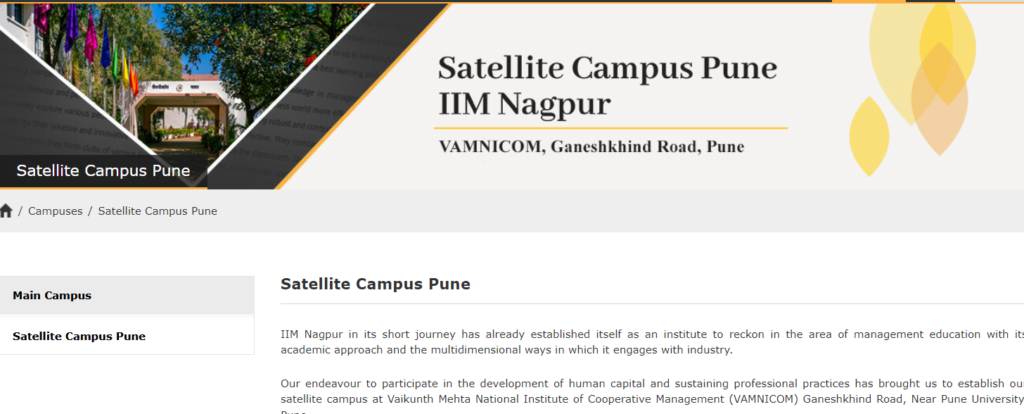
Pune deserves a good business school. And it lacked it earlier.
You may say Pune – oxford of East and “Vidyeche Maherghar” (विद्यचे माहेरघर – roughly home of education) – already has a large number of business schools. (the University of Poona (Now SPPU) has 18 b-schools in PCMC & 44 b-schools in Pune region. And we have many universities in Pune & independent B-schools).
True.
You may also say, that they are ranked high in various polls and rankings.
That is also true.
But if you are an insider, you know what’s cooking these rankings and business of business schools.
You don’t need to be an insider, a little curious look as an outsider and you can figure out what’s cooking.
Here are four ways to do that as an outsider.
First – Just talk to the directors and deans of these B-schools. I have talked to them. Many of them will say that anyone can teach OB-HR (Organization behavior and human resource) – first-year core courses of the MBA program. And now look at HR domain students. Size of HR class and their employability. No wonder, the placement team keeps complaining about the “lack of job opportunities for HR”
Compare this with for example: XLRI – HR specialized program. Within the HR domain itself, they have three departments – OB, HR, and IR (Industrial relations). Even if b-schools are not specialized in HR business school. Still, the director and dean need to appreciate the specialized faculties required at the post-graduation level.
Two – try discussing some recent HR-OB debates with faculty. You can gauge the depth. For instance job design and job-crafting and why later is becoming more important. Or as primitive as Taylor’s vs. Hawthorne and its implications in the upcoming AI job market (Both these concepts are primitive for the HR domain). (I used the OB-HR example, but you can use something from other specialties too).
Such rich academic debates in the management domain are unheard of in this “Oxford of East”.
Third, ask about the honorarium these institutes pay to the guests and visiting faculty. It’s openly available There are business imperatives, but still, the difference between other cities and top schools vs. Pune will shock you.
Some of these business schools do spend extravagantly on celebrities and events, but when it comes to knowledge work – they simply don’t value it. They don’t spend where spending is necessary.
This knowledge valuation – brings me to the fourth point. Look at the libraries of these institutes. Libraries are temples of knowledge. And shall be treated so. You will find dust and silence in the library, but not students and faculties. Faculties and academics are generally paid less. And books are expensive. Academic books are more expensive. Well-equipped libraries are a lifeline for academics.
[ One study found a steep rise in textbook costs, though this is not Indian data, things will be similar ]
(Source: https://tinyurl.com/DataSource2508access )
If faculties don’t have access to decent library resources, books, and journals – there is no way they can nurture and create knowledge. They end up becoming teaching machines, rather than knowledge workers.
(As a book-lover & book-club coordinator from Pune, this also tells me that Pune deserves a decent public library too! A separate blog post on it later).
IIM Nagpur’s entry in Pune (technically in the PCMC area) things are likely to improve within the business school domain.
Two cheers for that!
